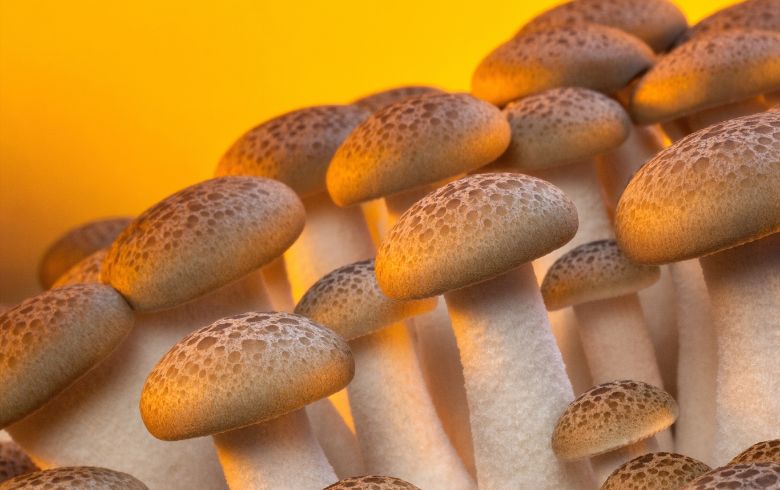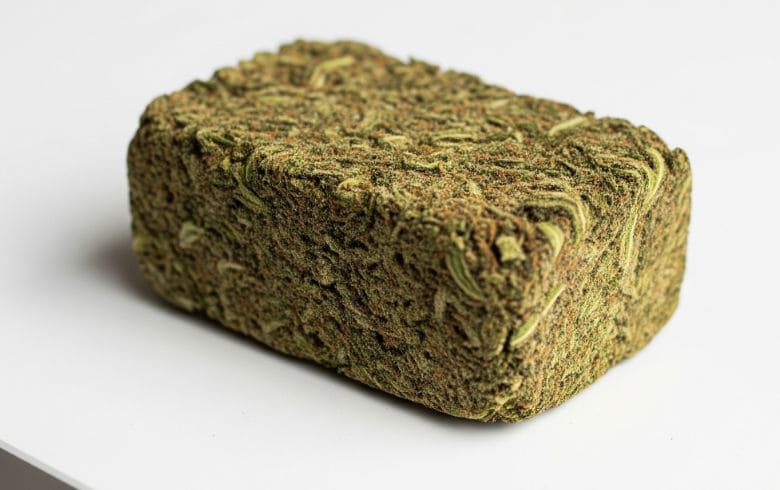HHC vs. Delta 8 THC – both are cannabinoids derived from cannabis that are attracting increasing attention. Beyond the well-known Delta 9 THC, alternatives like HHC (hexahydrocannabinol) and Delta 8 THC have gained popularity due to their effects and varying legal statuses in the United States. While related to THC, they differ in chemical structure, potency, and regulation, creating a complex landscape. Understanding these differences is essential for informed consumers and those interested in cannabinoids.
Delta 8 THC vs HHC: Chemical structure and properties
HHC is a semi-synthetic compound created by adding hydrogen atoms to THC through a process called hydrogenation. This removes double bonds from the molecule, making it chemically more stable. As a result, HHC is more resistant to heat, light, and oxidation, extending its shelf life.
Delta 8 THC is a minor cannabinoid and an isomer of Delta 9 THC, meaning it shares the same molecular formula but has a different structure. This structural change results in a weaker bond with CB1 receptors in the brain, producing less intense psychoactive effects compared to Delta 9. Delta 8 is often derived from CBD. Unlike HHC, it contains a double bond, making it less stable and more prone to degradation over time.
Psychoactive effects and user experience
HHC is generally considered more potent than Delta 8 (estimated at 70–80% the strength of Delta 9 THC). Users report strong euphoria, enhanced sensory perception, and relaxation, which may lead to sedation at higher doses. It offers a more intense experience, closer to traditional cannabis. Delta 8 THC provides a milder psychoactive profile (around 50–75% of Delta 9’s potency).
It tends to produce a clearer, more functional high, with less risk of anxiety or paranoia. Many users choose it for its relaxing effects, gentle euphoria, and pain relief — making it a suitable option for those seeking therapeutic benefits without overwhelming intoxication. Its lower binding affinity to CB1 receptors explains this reduced intensity.

Therapeutic potential of HHC and Delta 8 THC
Both cannabinoids show therapeutic potential, though research remains limited:
Delta 8 is often associated with pain relief and anxiety reduction, making it a more viable option for everyday use.
HHC, on the other hand, may provide powerful pain relief but its intense psychoactive effects may not be ideal for daily routines.

Legal status in the U.S.: Is HHC or Delta 8 THC allowed?
The legal status of these cannabinoids in the United States varies by state and federal interpretation:
- HHC: As of now, HHC is not federally scheduled under the Controlled Substances Act. However, certain states like Arkansas and Arizona have banned or restricted HHC sales. Its legal standing remains in a gray area, and enforcement varies depending on local law. Some states treat HHC as an analog of THC, which could subject it to regulation under the Federal Analogue Act.
- Delta 8 THC: Delta 8 is also in a legal gray area at the federal level. It is often synthesized from hemp-derived CBD, which is legal under the 2018 Farm Bill — as long as it contains less than 0.3% Delta 9 THC. Still, over 15 states have enacted bans or restrictions on Delta 8, citing public safety concerns due to its psychoactive effects and lack of FDA regulation.
This complex legal framework means that availability and use of HHC and Delta 8 THC can vary significantly from one state to another. While they remain accessible in many states, ongoing debates about their safety and regulation continue to shape the cannabinoid market in the U.S.

Trends in U.S. usage and market presence
HHC has gained rapid popularity in the U.S. since 2021 as a legal alternative to Delta 9 THC, especially in states where cannabis remains prohibited. It appears in vapes, edibles, and tinctures sold online or in smoke shops — particularly in states with looser hemp laws.
In contrast, Delta 8 THC established itself earlier and enjoys strong market penetration across much of the country. According to market reports, its demand grew sharply after the 2018 Farm Bill and remains high, although it faces increased scrutiny. Consumer interest in Delta 8 continues due to its mild effects and legal accessibility.
Despite limited federal oversight, the popularity of both cannabinoids suggests a growing consumer base looking for legal THC alternatives. Ongoing regulation may influence future availability, but for now, both remain key players in the evolving U.S. hemp market.
HHC vs Delta 8 THC: Safety concerns and health risks
There is limited research on the safety of both cannabinoids, which raises concerns among health professionals and regulators:
- HHC: Short-term side effects may include dry mouth, dizziness, and paranoia (especially at high doses). While some users report benefits, elevated doses may increase the risk of cardiovascular stress. Concerns include potential psychosis in vulnerable individuals and possible contaminants or heavy metals in the manufacturing process, particularly due to the lack of FDA regulation.
- Delta 8 THC: Adverse effects reported are similar to acute cannabis intoxication, including psychiatric symptoms (anxiety, paranoia) and respiratory issues (coughing). While considered milder, the largely unregulated market increases the risk of contaminated products. Vaping Delta 8 raises additional concerns about lung safety, especially with unknown additives or cutting agents.
Neither compound has undergone comprehensive long-term toxicological studies. HHC’s higher potency may amplify certain risks, while Delta 8’s milder nature doesn’t eliminate the dangers associated with poor product quality. The lack of consistent regulation worsens risks from impurities or mislabeling. Caution is strongly advised when using either substance.

Comparison table: HHC vs Delta 8 THC
| Feature | HHC (Hexahydrocannabinol) | Delta 8 THC |
| Chemical Structure | Semi-synthetic (hydrogenation of THC). No double bonds. | Isomer of Delta 9 THC (natural, often derived from CBD). Double bond present. |
| Chemical Stability | Very high (resistant to heat, light, and oxidation). Long shelf life. | Lower (more prone to degradation over time). |
| Potency (vs Delta 9) | High (approx. 70-80%). | Moderate (approx. 50-75%). |
| Psychoactive Effects | More intense. Euphoria, heightened senses, relaxation, possible sedation. Similar to Delta 9. | Milder, clearer headspace, more functional. Less anxiety or paranoia. Mild euphoria and relaxation. |
| Therapeutic Potential | Strong pain relief (less practical for daily use). | Pain and anxiety relief (more practical for daily use). |
| U.S. Legal Status (2025) | GRAY AREA. Not federally scheduled, but banned or restricted in some states. Legality varies by location. | GRAY AREA. Federally legal if hemp-derived (< 0.3% Delta 9 THC), but banned/restricted in over 15 states. |
| Market Presence in the U.S. | Increasing popularity in states with relaxed hemp laws. Available in vapes and edibles. | Widespread availability in smoke shops and online stores. Strong market penetration. |
| Health Concerns | Limited research. Short-term risks (dizziness, paranoia, heart rate). Potential psychosis. Risk of contamination. Long-term unknown. | Limited research. Psychiatric and respiratory risks. Contaminants in unregulated products. Vaping concerns. Long-term unknown. |

HHC and Delta 8 THC: Two different substances at their core
In summary, HHC and Delta 8 THC are distinct cannabinoids with key differences in structure, potency, effects, and—critically—their legal status in the U.S. HHC offers stronger effects and a longer shelf life, while Delta 8 provides a milder, more functional experience. Both lack comprehensive safety data, and users must navigate an unregulated market with caution.
For American consumers, understanding each state’s laws is essential. Some jurisdictions have outright bans on these cannabinoids, while others permit sales under hemp regulations. As research evolves and regulations catch up, staying informed will be key to safe and legal cannabinoid use in the U.S.
 Personalized attention +34 96 206 62 98
Personalized attention +34 96 206 62 98 Free shipping to Iberian Peninsula from 30€
Free shipping to Iberian Peninsula from 30€ 9/10 Rating
9/10 Rating Discreet shipping
Discreet shipping






